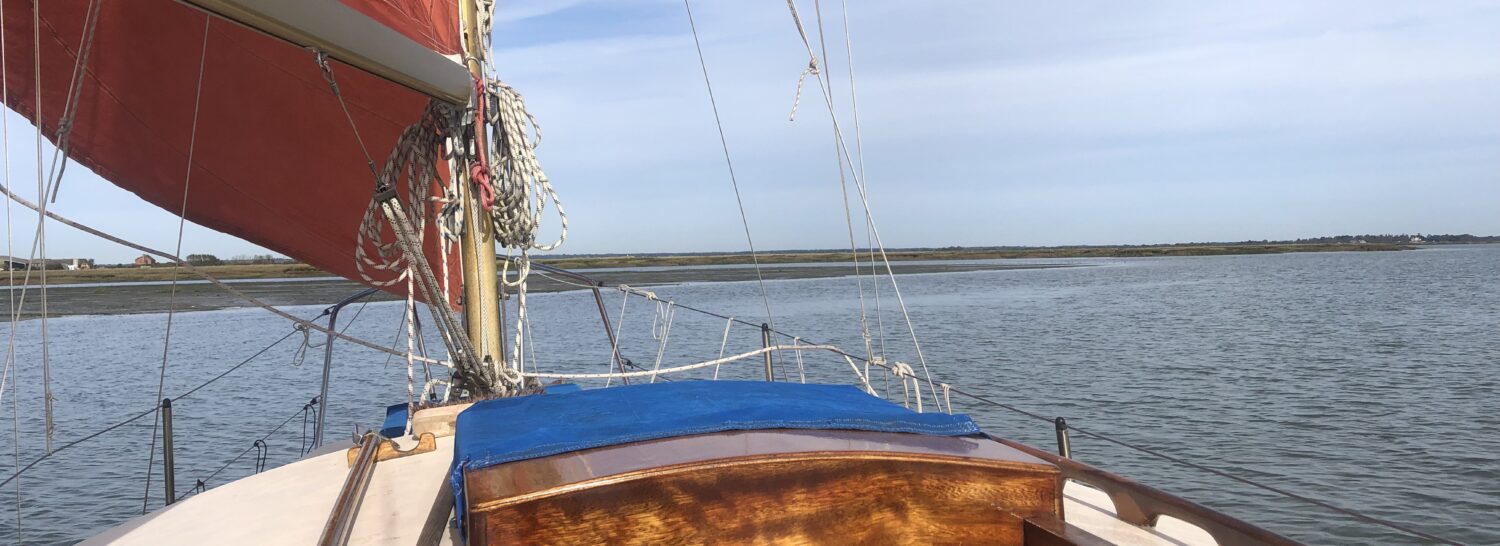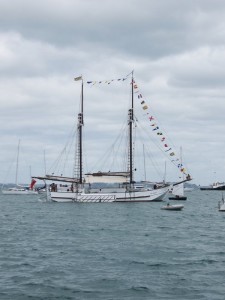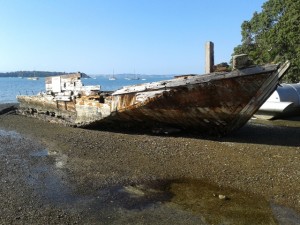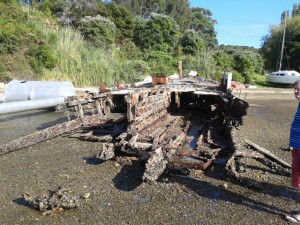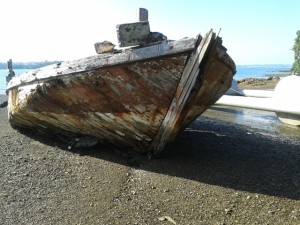My friends in New Zealand sent me a few views of the abandoned hulk of a coastal scow. These craft were once a common sight around the coasts of New Zealand – especially the North Island. I was sent a long time ago a picture of, I believe, one of the last scows.
The above vessel is thought to be the Jane Gifford and thought to date to 1924.
It is thought that around 130 – 140 of these vessels built between c1870 to around 1925. The largest were able to sail the Pacific to the American west coast. Most worked the coasts, rivers and shallow creeks – familiar isn’t it! The last of the original vessels were still around, working under power into the 1960s.
A replica scow was built in 1993 and named after a man closely associated with the vessels. The vessel, the Ted Ashby, can be seen at: http://www.maritimemuseum.co.nz/voyager-live
The vessels were originally a direct copy of American Great Lakes types, but soon evolved into a New Zealand vessel, especially with the bow shape. Some early vessels were fitted with leeboards, but they hampered cargo work – log carrying being the main. Was an ‘old’ Thames man out there…? Centre plates soon became the means to give the flat bottomed vessels a grip when sailing.
http://en.wikipedia.org/wiki/Scow and http://homepages.ihug.co.nz/~tonyf/scows/index.html
The views of the remains of a vessel up on a beach kind of struck a chord with me: its reminiscent of our own Thames barges. The centre plate casing can clearly be seen. The vessel was diaganol planked too and had substantial chine timbers. Interesting…
It is a reminder that all countries will have the remnants of coastal traders lurking in forgotton corners. It is hoped that a historic record has been kept…
Anyway, my thanks to Paul, an old Leigh-on-Sea man, for sending me these…
